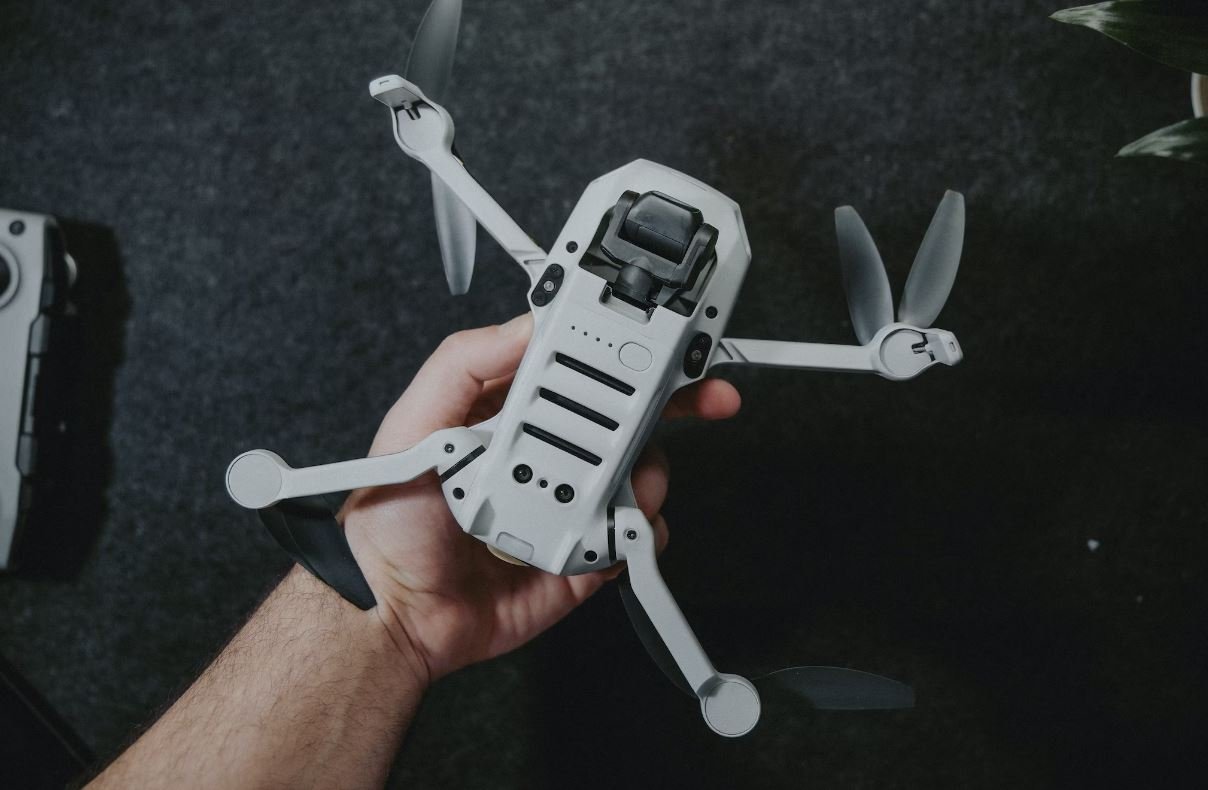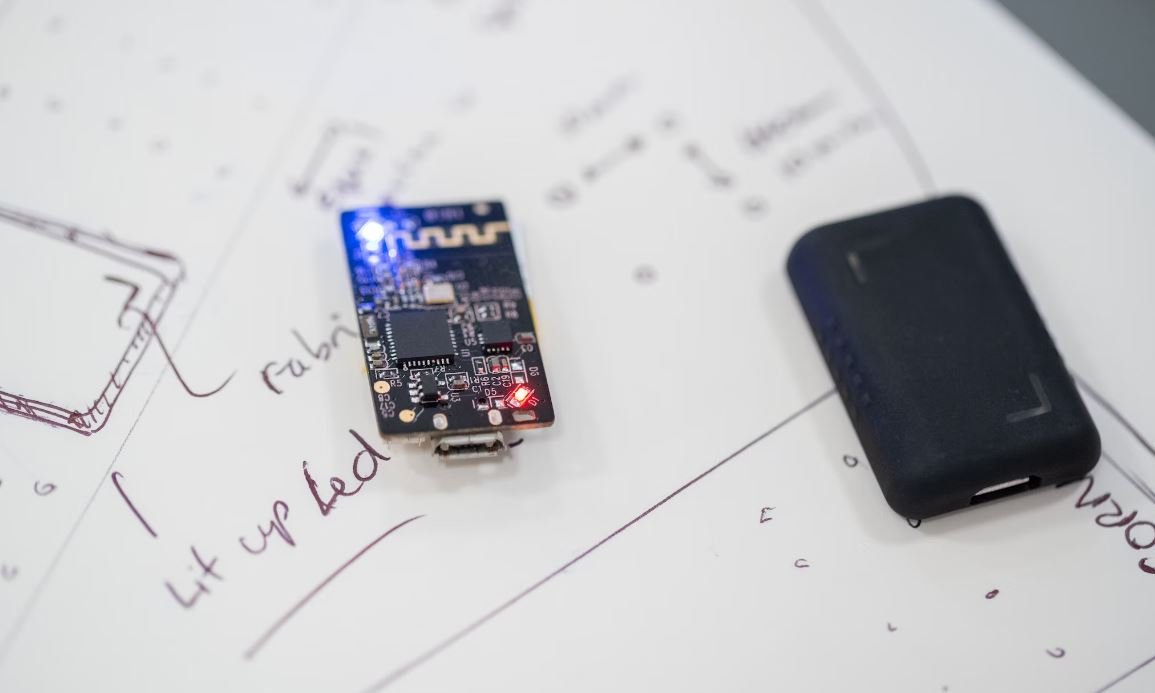Generative Music with Ableton
Are you tired of creating repetitive and predictable music? Do you want to explore new avenues of creativity in your music production? Look no further! Ableton Live offers a powerful tool for creating generative music, allowing you to break free from traditional composition methods and unlock endless possibilities.
Key Takeaways
- Generative music is a technique that utilizes algorithms to create music that evolves on its own.
- Ableton Live provides various features and instruments that support generative music creation.
- Generative music can enhance your creativity and bring unique elements to your compositions.
Generative music, as the name suggests, is a method of producing music that is generated through algorithms and rules rather than being pre-composed. With Ableton Live, you can easily create music that evolves and changes over time, adding a dynamic and unpredictable element to your compositions.
Using Ableton Live‘s built-in instruments such as Wavetable, Operator, and Max for Live devices, you can create complex soundscapes, evolving melodies, and rhythmic patterns that continuously transform during playback. The integration of these instruments with Ableton’s automation capabilities allows for the manipulation of various parameters, opening up a world of infinite sonic possibilities. *
Each time you play your generative music piece, it will be unique, creating a captivating experience for your listeners. Capture those rare moments of musical brilliance and surprise yourself with the ever-changing nature of your own compositions.
Getting Started with Generative Music in Ableton Live
To begin creating generative music in Ableton Live, follow these steps:
- Create a blank MIDI or audio track in Ableton Live.
- Choose your desired instrument or device.
- Explore and experiment with the instrument’s parameters, such as envelope settings, modulation options, and filters.
- Utilize automation to control these parameters, creating randomization and evolution in your music.
- Experiment with MIDI effects, such as arpeggiators or randomizers, to add further variation to your compositions.
- Layer multiple generative elements together to create rich and complex arrangements.
By following these steps, you can begin to explore and harness the power of generative music in Ableton Live, pushing the boundaries of your creativity and taking your music production to new heights.
Generative Music Examples
Below are three examples of generative music created in Ableton Live:
| Example | Description |
|---|---|
| Gentle Ambience | Ambient generative music piece featuring evolving pads and subtle rhythmic elements. |
| Intense Energy | Energetic generative music piece with pulsating basslines, complex drum patterns, and unpredictable synth melodies. |
| Experimental Soundscape | An abstract generative music piece utilizing unconventional sound sources, experimental effects, and randomized parameters. |
With Ableton Live‘s vast array of instruments, effects, and automation capabilities, you can create your own unique generative music pieces exploring a wide range of genres and styles.
Conclusion
Generative music in Ableton Live opens up a world of creative possibilities, allowing you to break free from traditional composition methods and explore the realm of algorithmic music. Unlock your imagination, experiment with different parameters, and create captivating music that evolves on its own. Embrace the limitless potential of generative music with Ableton Live today!

Common Misconceptions
1. Generative music is just random noise
One common misconception about generative music created with Ableton is that it is simply random noise without any structure or meaning. However, generative music is not haphazardly generated; it is created using algorithms and rules to ensure coherence and musicality. These algorithms enable the composition of complex and evolving musical patterns that can evoke deep emotional responses.
- Generative music involves the use of carefully crafted algorithms and rules.
- It can create intricate and evolving musical patterns.
- Generative music can evoke emotional responses in listeners.
2. Generative music eliminates the need for human creativity
Another misconception is that generative music created with Ableton replaces the need for human creativity in the music composition process. While generative systems can generate initial musical ideas and structures, they do not possess the ability to infuse music with unique emotions, personal experiences, or artistic intentions. Human input remains crucial in curating and shaping the generative music output to achieve a desired artistic outcome.
- Generative music systems can generate initial musical ideas and structures.
- Human creativity is still necessary to infuse music with unique emotions and personal experiences.
- Artistic intention and curation require human input in generative music composition.
3. Generative music lacks originality or authenticity
There is a misconception that generative music produced with Ableton lacks originality or authenticity because it is algorithmically generated. However, generative music systems are flexible and customizable, allowing musicians to define the parameters, rules, and constraints for the algorithms. This customization enables artists to imbue their unique musical identity into the generative process, resulting in original and authentic compositions that reflect their artistic vision.
- Generative music systems can be customized to suit an artist’s musical vision.
- Artists can define rules and parameters that align with their artistic identity.
- Generative music allows for original and authentic compositions that reflect the artist’s vision.
4. Generative music is exclusively created by computer software
Many people assume that generative music created with Ableton is solely dependent on computer software. However, while software like Ableton provides powerful tools and platforms for generative music creation, it is important to note that the human element is still essential. Musicians and artists must exercise their creativity, musical knowledge, and artistic judgment when utilizing the software to shape and refine the generative music output.
- Generative music creation involves the active involvement of musicians and artists.
- Human creativity and artistic judgment are integral to shaping the generative music output.
- Ableton and similar software provide tools and platforms for generative music creation.
5. Generative music is inaccessible or difficult to understand
Some people may believe that generative music created with Ableton is overly complex or inaccessible for the average listener. While generative music can be intricate and conceptually deep, it is not fundamentally more difficult to appreciate compared to traditional compositional styles. In fact, generative music has the potential to offer new and exciting listening experiences for both musicians and non-musicians, as it can introduce unexpected elements and musical structures that engage and captivate the listener.
- Generative music is not fundamentally more difficult to understand than traditional compositional styles.
- It can offer new and exciting listening experiences for musicians and non-musicians alike.
- Generative music can introduce unexpected elements and musical structures that captivate the listener.

Introduction
Generative music is a fascinating concept that involves using algorithms and software to create music that continuously evolves and changes over time. With the help of Ableton, a popular digital audio workstation, musicians and producers can explore this innovative approach to composition and unleash their creativity in new ways. In this article, we will explore various elements and aspects of generative music, ranging from its historical background to the exciting possibilities it offers. Each table below presents an intriguing and informative aspect of generative music, providing insight into this captivating field.
The Origins of Generative Music
Delve into the roots of generative music with this table that showcases the pioneers and influential figures in the development of this art form.
| Name | Contribution |
|---|---|
| Brian Eno | Coined the term “generative music” and popularized its use |
| John Cage | Introduced the concept of chance in music composition |
| Iannis Xenakis | Applied mathematical models to music composition |
Benefits of Generative Music
Discover the advantages that generative music offers to musicians, such as providing endless variations, fostering creativity, and enhancing the overall listening experience.
| Advantages of Generative Music |
|---|
| Endless variations and possibilities |
| Constantly evolving compositions |
| Unleashes creativity and inspiration |
| Offers a unique listening experience |
Tools for Creating Generative Music
Explore the various software and hardware tools used by musicians and producers to craft captivating generative compositions.
| Tool | Description |
|---|---|
| Ableton Live | A digital audio workstation with powerful features for generative music creation |
| Max/MSP | A visual programming language for music and multimedia |
| Buchla Easel | A modular synthesizer renowned for its generative capabilities |
Generative Music in Film and Television
Discover the intersection between generative music and the world of film and television through this table showcasing notable works that incorporate this unique style.
| Work | Composer | Description |
|---|---|---|
| Black Mirror: Bandersnatch | Geoff Barrow, Ben Salisbury | A Netflix interactive film featuring generative music to adapt to viewer choices |
| Arrival | Jóhann Jóhannsson | Utilized generative music techniques to evoke an otherworldly atmosphere |
Generative Music in Gaming
Witness the impact of generative music in video games, where it enhances immersion, adapts to player actions, and creates dynamic soundscapes.
| Game | Developer | Use of Generative Music |
|---|---|---|
| “No Man’s Sky” | Hello Games | Generates an adaptive, procedurally generated soundtrack based on the game’s vast universe |
| “Journey” | Thatgamecompany | Employs generative music to evoke emotions and seamlessly integrate with gameplay |
The Role of Artificial Intelligence
Learn about the growing influence of artificial intelligence (AI) in generative music, with algorithms and machine learning enhancing the creative process.
| AI-Based Tools | Application | Example |
|---|---|---|
| Magenta (Google) | Composition assistance and music generation | Creating original piano compositions based on user input |
| Celemony Capstan | Automatic detection and restoration of audio imperfections | Removing wow and flutter from vintage recordings |
Generative Music in Live Performances
Discover how generative music is transforming live performances, enabling musicians to create immersive experiences for their audience.
| Artist | Description |
|---|---|
| Aphex Twin | Uses generative algorithms to create complex, ever-changing soundscapes during live shows |
| Holly Herndon | Crafts generative compositions that evolve with the audience’s interaction during her performances |
Generative Music in Music Production
Explore the impact of generative music on production techniques and how it influences the composition and arrangement process.
| Production Technique | Application |
|---|---|
| Parameter Modulation | Automating various parameters to evolve the sound over time |
| Probability Triggering | Using random probability to trigger different musical elements |
| MIDI Generative Devices | Hardware or software that generates random MIDI data to control sound sources |
Generative Music in Various Genres
Discover how generative music finds its way into different musical genres, expanding creative possibilities for musicians across styles.
| Genre | Application |
|---|---|
| Ambient | Creating immersive sonic environments that evolve continuously |
| Experimental | Pushing the boundaries of composition with generative processes and unconventional techniques |
| Electronic | Integrating generative elements to drive hypnotic rhythms and melodic patterns |
Conclusion
Generative music, with the aid of Ableton and other innovative tools, offers musicians and producers a chance to break through the conventional barriers of composition. From its origins rooted in chance and mathematical models to its integration in film, gaming, and live performances, generative music has proven to be a captivating and powerful force in contemporary artistic expression. With each table providing a glimpse into different aspects of this fascinating world, we hope to inspire musicians to explore generative music and discover its infinite possibilities.
Generative Music with Ableton
FAQs
What is generative music?
How can Ableton be used for generative music?
What are the advantages of using generative music in Ableton?
Are there any specific devices or plugins recommended for generative music in Ableton?
Can generative music be performed live using Ableton?
Can generative music in Ableton be recorded and used in traditional studio settings?
Are there any tutorials or resources available for learning generative music in Ableton?
Can generative music be used for commercial purposes?
Can generative music be used in collaboration with other musicians?
Are there any famous artists who incorporate generative music in their work?




